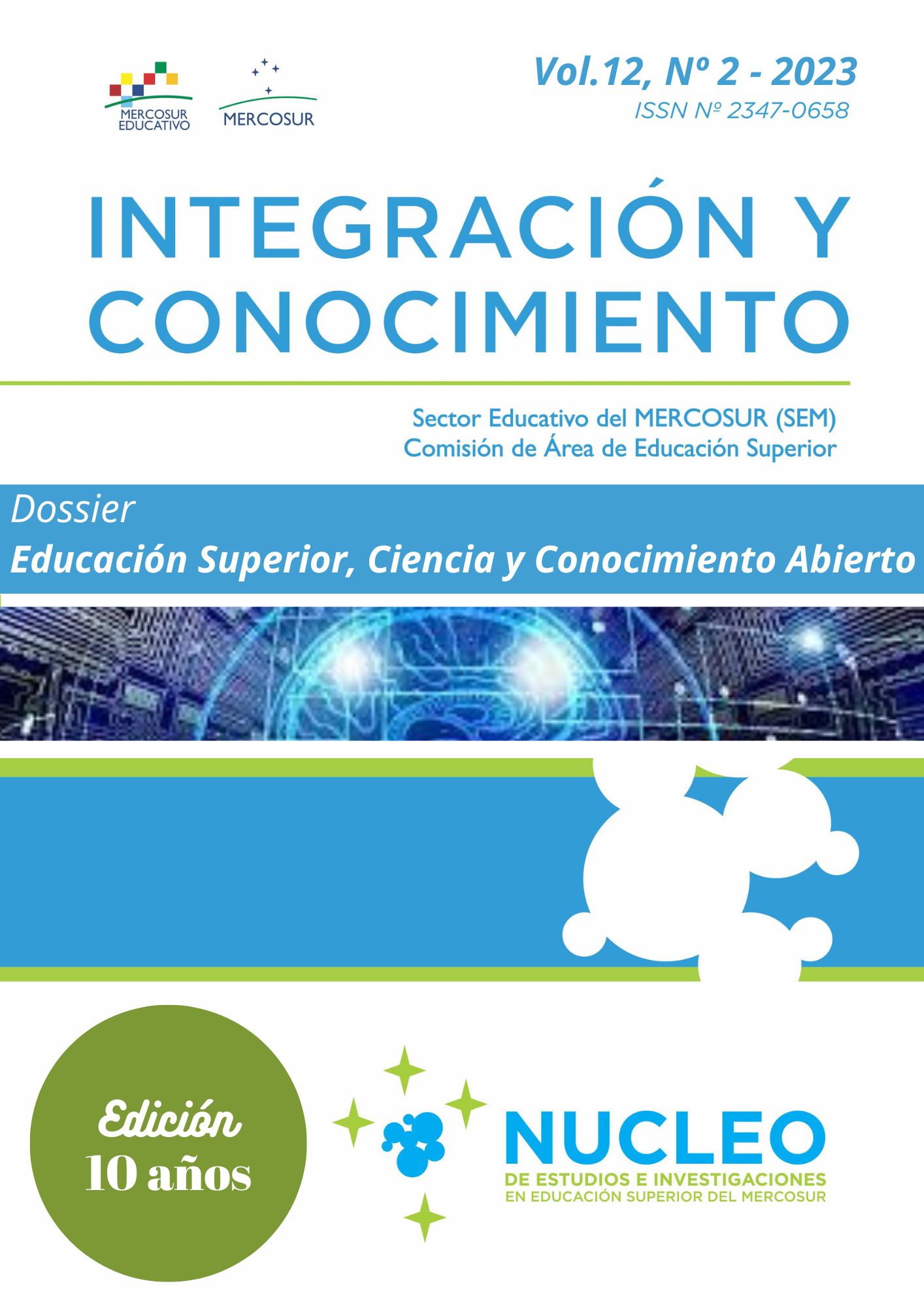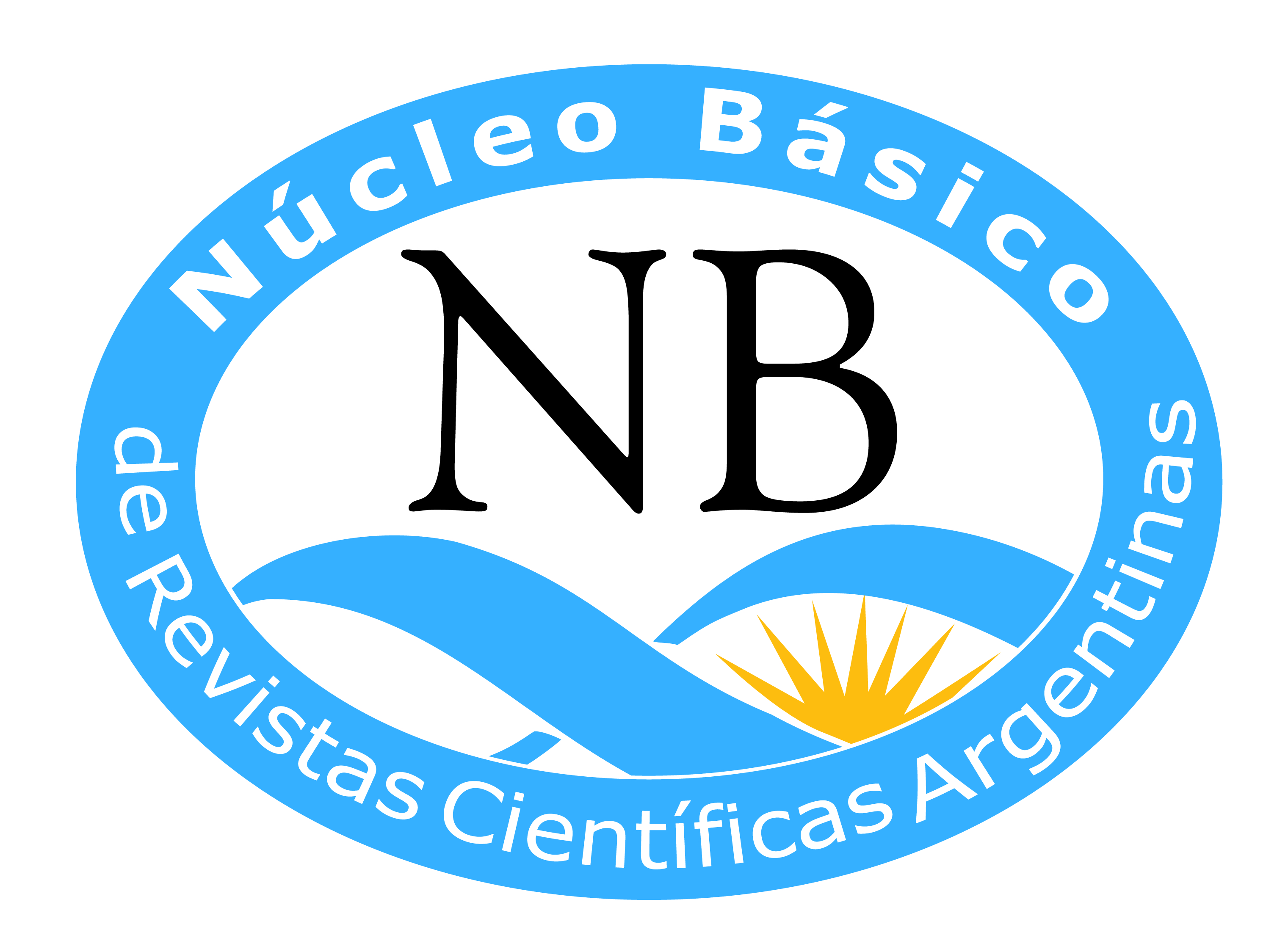The challenge and the experience of open access at Universidad Nacional de Córdoba
DOI:
https://doi.org/10.61203/2347-0658.v12.n2.42035Keywords:
Open Access, Open Knowledge Office, Universidad Nacional de Córdoba, Latin America and the Caribbean.Abstract
This paper presents the experience accumulated at the Universidad Nacional de Córdoba, Argentina (UNC) between 2008 and 2023 with respect to the international open access movement and describes the strategies and services made available to the university community. It also details the characteristics and evolution of the spaces available for the dissemination of the University's intellectual production, the University Digital Repository and the Journals Portal, which gathers the journals published at the UNC. It also mentions the creation of the Open Knowledge Office and refers to the consensus reached by the university community for the approval of the “Institutional Open Access Policies for Publications”; by the Honorable Superior Council, which among its functions is in charge of issuing ordinances and regulations in accordance with the purposes of the University. Two strategies for moving towards open science in Latin America and the Caribbean are presented.
Downloads
References
Budapest Open Access Initiative. (14 de febrero de 2002). Declaration. Recuperado de: https://www.budapestopenaccessinitiative.org/read/
Carballo, M. (Ed.), Tamarit, F. (Ed.), Juri, H. (Ed.), Villegas, C. (Comp.) (2020). Foros y mesas de la Conferencia Regional de Educación Superior CRES 2018. Instituto Internacional de la UNESCO para la Educación Superior en América Latina y el Caribe. Recuperado de: http://www.cres2018.unc.edu.ar/uploads/Foros-y-mesas-de-la-CRES-2018_DIGITAL.pdf
Comisión Económica para América Latina y el Caribe. (2020). Gestión de datos de investigación. Santiago de Chile.Recuperado de: https://biblioguias.cepal.org/gestion-de-datos-de-investigacion
Comisión Europea. (2013). El acceso abierto a las publicaciones de investigación alcanza el llamado “punto sin retorno”. Recuperado de: https://ec.europa.eu/commission/presscorner/detail/es/IP_13_786
Comité Asesor en Ciencia Abierta y Ciudadana. (2022). Diagnóstico y lineamientos para una política de ciencia abierta en Argentina. Ministerio de Ciencia, Tecnología e Innovación. Recuperado de: https://www.argentina.gob.ar/ciencia/comite-ciencia-abierta
Declaración de San Francisco sobre la evaluación de la investigación. (16 de diciembre de 2012). Recuperado de: https://sfdora.org/read/read-the-declaration-espanol/
Fausto, S. (2013). Evolución del Acceso Abierto, breve histórico. SciELO en Perspectiva, October 21. Recuperado de: https://blog.scielo.org/es/2013/10/21/evolucion-del-acceso-abierto-breve-historico/
Ginsparg, P. (2021). Lessons from arXiv’s 30 years of information sharing. Nat Rev Phys 3, 602–603. Recuperado de: https://doi.org/10.1038/s42254-021-00360-z
Hicksa, D., Woutersb,P., Waltmanb, L., de Rijckeb, S., Rafolsc, I. (2015). Bibliometrics: The Leiden Manifesto for research metrics. Nature, 520, 429–431. Recuperado de: https://www.nature.com/articles/520429a
Ley 25.467/2001, Sistema Nacional de Ciencia, Tecnología e Innovación. Boletín Oficial de la República Argentina del 26 septiembre 2001. (29740). Recuperado de: https://www.boletinoficial.gob.ar/detalleAviso/primera/7217905/20010926
Ley 26.899/2013, Repositorios digitales institucionales de acceso abierto. Boletín Oficial de la República Argentina del 9 diciembre 2013. (32781).Recuperado de: https://www.boletinoficial.gob.ar/detalleAviso/primera/98996/20131209
Ministerio de Ciencia, Tecnología e Innovación (2020). Sobre DACyTAr. Recuperado de: https://dacytar.mincyt.gob.ar/acerca
Museo Botánico Córdoba (s.f.). Herbario. Recuperado de: https://museobotanico.unc.edu.ar/herbario
Nardi, A., Di Doménico, E., y Pizzi, M. (2023). Mecanismos más sofisticados para el control del conocimiento académico Anuario Basta Biblioclastia, 1(1), 10–27. Recuperado de: https://revistas.unc.edu.ar/index.php/abb/article/view/40061
Oficina de Conocimiento Abierto (2022). Tipos del Herbario CORD. Recuperado de: https://rdu.unc.edu.ar/handle/11086/15046
Organización de las Naciones Unidas para la Educación, la Ciencia y la Cultura. (2021). Recomendación de la UNESCO sobre la Ciencia Abierta. Recuperado de: https://unesdoc.unesco.org/ark:/48223/pf0000379949_spa
Resolución 2008-11620, Programa de Cooperación Interuniversitaria e Investigación Científica entre España e Iberoamérica (PCI-Iberoamérica). (9 de julio de 2008) Boletín Oficial del Estado de España núm.165.Recuperado de: https://www.boe.es/diario_boe/txt.php?id=BOE-A-2008-11620
Resolución 753 - E/2016, Reglamento operativo para la aplicación de la ley nº 26.899. Boletín Oficial de la República Argentina. (16 de noviembre 2016) Recuperado de: https://www.boletinoficial.gob.ar/detalleAviso/primera/154125/20161116
Resolución Rectoral 1714/2014, Creación de la Oficina de Acceso Abierto. Digesto Universidad Nacional de Córdoba. Recuperado de: https://digesto.unc.edu.ar/handle/123456789/42305
Rico-Castro, P., Bonora, L. (2023). Políticas de Acceso Abierto en América Latina, el Caribe y la Unión Europea. Avances para un diálogo político. Unión Europea. Recuperado de: https://data.europa.eu/doi/10.2777/162
Universidad Nacional de Córdoba. Febre, A., Cohen Arazi, T., García, L., Di Domenico, E., Pizzi, M., Nardi, A., Orcellet, L., Scándolo, C. y Salvai, N. (2019). Migración de Metadatos y Archivos Digitales.Córdoba. Recuperado de: https://digesto.unc.edu.ar/handle/123456789/360236
Universidad Nacional de Córdoba. Redacción Campus (21 de junio de 2018). Acceso abierto al conocimiento, el reto de las universidades para su democratización: Especialistas en Córdoba. Recuperado de: http://www.cres2018.unc.edu.ar/noticias/noticias-cres2018/acceso-abierto-conocimiento
Wilkinson, M., Dumontier, M., Aalbersberg, I. et al. The FAIR Guiding Principles for scientific data management and stewardship. Sci Data 3, (2016). Recuperado de: https://doi.org/10.1038/sdata.2016.18
Downloads
Published
Issue
Section
License
Copyright (c) 2023 Integración y Conocimiento

This work is licensed under a Creative Commons Attribution-NonCommercial-ShareAlike 4.0 International License.
Authors who have publications with this journal accept the following terms:
a. Authors shall retain their copyright and guarantee the journal the right of first publication of their work, which shall simultaneously be subject to the Creative Commons License of Recognition which allows third parties to share the work as long as its author is indicated and its first publication is this journal.
b. Authors may adopt other non-exclusive licensing agreements for the distribution of the published version of the work (e.g., depositing it in an institutional telematic archive or publishing it in a monographic volume) provided that the initial publication in this journal is indicated.
c. Authors are allowed and encouraged to disseminate their work via the Internet (e.g. in institutional telematic archives or on their website) after publication of the article, which may lead to interesting exchanges and increased citations of the published work. (See The Effect of Open Access).



